Sharansky’s Exodus
Unlike virtually all Israelis, who celebrate only one Passover Seder, Natan Sharansky and his family celebrate two. But their second Seder isn’t on the second night of Passover. It’s six weeks earlier, on the anniversary of Sharansky’s release from the Soviet Union and his reunion with his wife, Avital, in Israel. That Seder, he writes, has been an opportunity to tell his daughters—and now his grandchildren—the story of his personal exodus.
Our more personal seder always revolves around our children’s questions. Avital and I answer them, as I wear the kippah a Ukrainian cellmate made for me in the Gulag from the rough cloth used to line my boot. When my daughters were younger, they would ask about my best friends in my punishment cell, the spiders. They would ask how we used Morse code to communicate from one cell to another. And they were always fascinated by how we spoke through the “toilet phones,” sticking our heads deep inside the bowl after draining it of water.
The Pharaoh of this exodus was the general secretary of the Communist Party, Leonid Brezhnev, or the hard-hearted state apparatus he oversaw. However, as Sharansky and Gil Troy, the accomplished historian with whom he coauthored Never Alone, make clear, the more insidious enemy was Orwellian doublethink, “the round-the-clock public charade” of knowing one thing but saying another that dominated Soviet life. It was at the Moscow Institute of Physics and Technology, the Russian MIT, that Sharansky realized that even science would not provide an escape from this enforced hypocrisy:
We continued paying lip service to the Soviet gods like everyone else. We kept taking tests on Marxist doctrine every semester, even when studying at the postdoctoral level. Decades later, during my interrogations, I spied my KGB tormentors studying their Communist handbooks.
Sharansky’s break with doublethink came not through science but through Israel and Judaism. In particular, it came with the news of Israel’s victory in the Six-Day War after “months of Soviet propaganda predicting a historic victory of ‘progressive Arab nations’ over the ‘lackeys of American imperialism.’” Sharansky became fascinated with Israel and all things Jewish, reading everything he could find from old pre-Soviet Russian history books to samizdat literature. One of the underground translations he read was Leon Uris’s Exodus. “Reading it today,” Sharansky says, “it’s hard to believe how such a heavy-handed, sentimental novel could influence so many usually hard-nosed, cynical, Russian Jewish intellectuals. But the book was a revelation. . . . It helped me see myself as part of the story.”
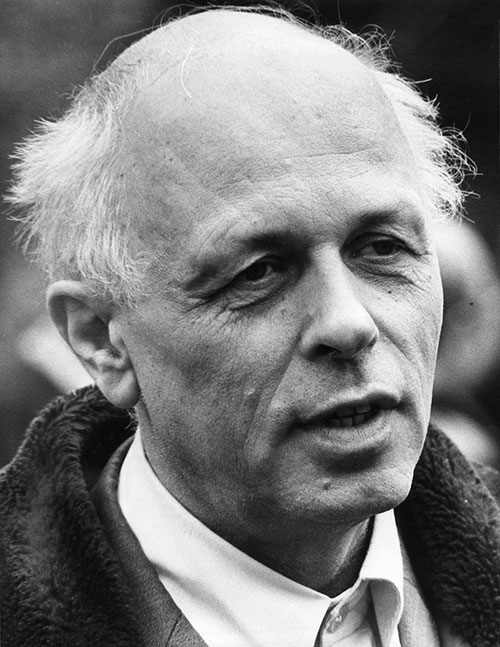
In the late 1960s and early 70s, Sharansky’s growing identification with the Jewish people came together with the leading Soviet physicist Andrei Sakharov’s inspiring call for intellectual freedom and human rights to break the shackles of his doublethink. In 1973, he became a refusenik, someone who had applied to emigrate to Israel, been refused, and was now an enemy of the state. Two years later, he was a leading spokesman for both the refusenik movement and Sakharov’s Soviet human rights movement. “Step by liberating step,” he writes, “I was running toward freedom.”
The Soviet Union wasn’t the only force with which he had to contend. Sharansky and Troy recount the now-famous disagreement among refuseniks over whether to focus their movement exclusively on the cause of Soviet Jewry or to join with Sakharov in pushing for Soviet compliance with the 1975 Helsinki Accords on human rights for all its citizens. While Sharansky “never expected that supporting the [non-Jewish] dissidents would risk getting me excommunicated from my national struggle,” in fact, it did.
Israel’s Liaison Office, which conducted a worldwide operation designed to help Soviet Jews emigrate, feared that Sharansky was putting the entire project at risk. “How can we say to our Russian counterparts that we don’t interfere in your internal affairs?” they asked him, if the leading refusenik was insisting on doing precisely that. When Sharansky refused to budge, the Liaison Office invited Avital, who was already in Israel, for an off-the-record conversation. They were going to drop her husband. “Forget about him,” they warned her. “He’s ruining his life and will eventually ruin yours too. You’re still young. We will help you start a new life.”
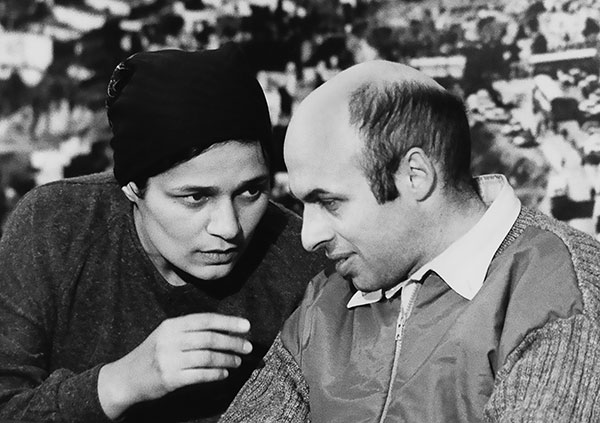
I happened to be in the room when Sharansky told that story to his students at Shalem College, in Jerusalem, a few years ago. I’ll never forget the looks of horror on their faces. Here was the Jewish people’s greatest living hero telling them that representatives of the country that he had been struggling so mightily to reach—their country—had implored his own wife to abandon him. Natan saw their shock, but instead of reveling in their outrage or trying to relieve it, he used it to teach: the fact that a principle is deeply held does not necessarily make it wise. “They were passionate Zionists,” he reminded the students. “They were absolutely certain that what they were doing was critical for Israel and the Jewish people.”
In some ways a reprise of his earlier memoir Fear No Evil, Sharansky’s new book takes us further, covering Sharansky’s career in the Knesset and the NGO sector. (He quips that “having served for nine years in each, I don’t know where I suffered most.”)
Although he was deputy prime minister for two years, Sharansky notes that his uncompromising stances hindered his political success. But he never apologizes for his commitment to principle; indeed, he worries that the Jewish world is too willing to abandon principle for political expediency. The Soviet Empire crumbled and Israeli governments repeatedly dissolve, but the threat of doublethink survives all. If the Jewish people need liberation today, he argues, it is from its tendency to delude itself.
Doublethink, Sharansky believes, has many Israeli and Jewish leaders in its grip. He calls the late prime minister Shimon Peres’s book, The New Middle East, “embarrassingly childlike,” not, he intimates, because Peres ought to have known better but precisely because he must have. When Peres told Sharansky that he shouldn’t insult Arafat because Arafat was the Palestinians’ leader and “they love him,” the former prisoner of the Gulag was utterly unmoved. “They love Arafat no more than the Russians liked Stalin at the height of the purges,” Sharansky told Peres. The conversation ended.
Sharansky’s assessment of politicians with whom he was aligned on the Israeli center-right may surprise some readers. He is repeatedly critical of Benjamin Netanyahu, yet also characteristically provides a more nuanced evaluation of the prime minister than one generally hears from his critics. He lambastes Bibi for caving to haredi parties on the now infamous Kotel compromise, which would have provided a mixed prayer space for non-Orthodox men and women along the southern part of the Western Wall. He also thinks that Netanyahu failed in his role as a leader of world Jewry a few months later after the “Unite the Right” rally in Charlottesville, Virginia. “As the leader of the Jewish state,” he writes, “Benjamin Netanyahu should have immediately condemned Trump’s moral dithering in the face of Charlottesville’s neo-Nazis.” Netanyahu, though, was pointedly silent.
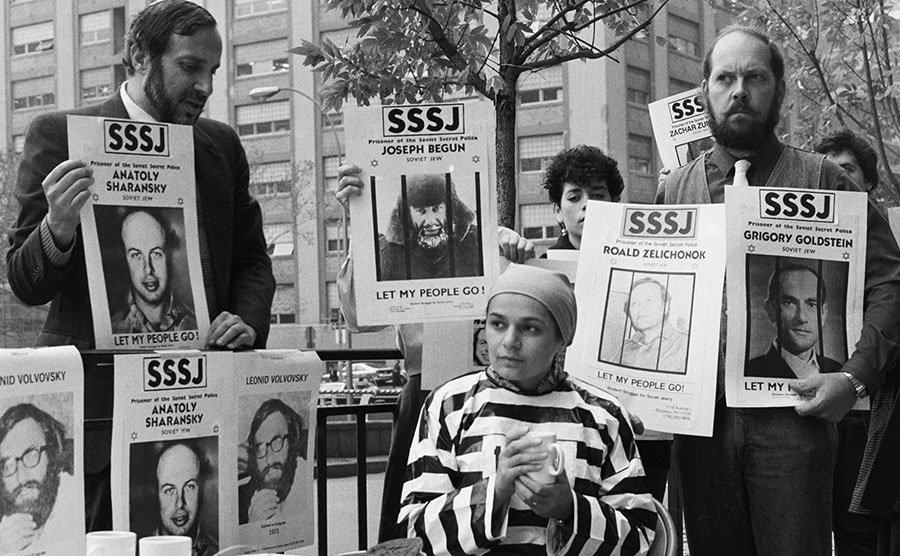
Yet Sharansky understands why Bibi dodged criticizing the American president. “Bibi,” he reminds us, “is not in the world of moral lectures or delicate sensibilities, but of crude politics for a noble purpose.” While he certainly understands why most American Jews disapproved of their president, he found their reactions to Trump’s policies on Israel much worse than peculiar.
While many Israelis couldn’t bring themselves to criticize Trump, most American Jews couldn’t bring themselves to thank him. . . . Even when Trump recognized Jerusalem as Israel’s capital, many American Jewish liberals chided him for a move they themselves had demanded for decades.
Indeed, Sharansky and Troy drily note, “Many Israelis wondered how hatred for a term-limited president could trump Jews’ eternal love of Jerusalem.”
That is no accidental barb. Whatever he might think of Peres, Bibi, or others, Sharansky’s sharpest words are reserved for American Jews and the intentional naivete and self-deception that, he thinks, now virtually define them. Early on in the book, he tells us about a meeting he and other refuseniks had with a visiting Reconstructionist rabbi, who explained his theological naturalism to them. After he left, a dissident named Sasha Lunts chuckled and said, “Only America produces rabbis who know there is no God.”
But what ails American Judaism, as far as Sharansky and Troy are concerned, is not religious radicalism but intellectual laziness. Sharansky recounts how he and Avital were overwhelmed by requests from parents and grandparents to speak to their kids, kids who knew virtually nothing about either the Soviet Jewry movement or Jewish history and were thus fairly unmoved by the Sharanskys’ story. Tired of the charade, they found an effective solution:
Now, when asked to speak to young teens or to their classes, Avital and I propose, “First, let them read a book, any book, about the struggle. Let them come with questions. We will be happy to answer.” Since we added this condition, the number of speaking requests has dropped drastically.
Comparing the education, or lack thereof, of his generation of refuseniks to American Jews, he says that it seems to be “harder to overcome intentional indifference than imposed ignorance.”
Though he is no fan of the intentional indifference of many American Jews, Sharansky is even less sympathetic to their frequent unwillingness to stand up for their own people. On a visit to an American college campus, one student told him, “For me as a liberal Jew, it would be better if Israel didn’t exist.” Another, a student at Harvard Business School, was worried that some of her professors might see pro-Israel activism as problematic, which might then affect her grades. “Once I am established in my career,” she told the refusenik who had been sentenced to 13 years of forced labor in the Gulag, “I can start speaking on behalf of Israel.”
He is also stunned by Jews who live in the world’s oldest democracy yet have no regard for Israel’s democracy. He often finds himself speaking with American Jews and Jewish leaders who want their definition of Jewishness and their ideas about how to resolve the Israeli-Palestinian conflict to carry great weight, even when Israeli voters see things differently. With regard to the conflict, this involves a variation of doublethink or at least very wishful thinking. As he describes the basic thought process, “there’s no partner, but we want peace now. Let’s rush ahead and make it happen.” Of course, he hardly needs to note, the American Jews who think this way are not the ones who would bear the brunt of such policies.
This, of course, is a common criticism of the policy preferences of dovish American Jews, but Sharansky’s experience as a dissident and human rights activist gives him a unique perspective on the conflict. “If there is one real crime the Israeli government has committed against the Palestinians,” says Sharansky, “it’s the Oslo Accords,” which entrenched the corrupt, tyrannical Palestinian Authority along with its hopeless, self-destructive goal of ending the Jewish state. Much later in the book, Sharansky muses, “Here we stand, thirty years later, with more tension, more suffering, more victims, and much more hatred.”
Yet Sharansky’s abiding devotion to the Jewish people will not allow him to give up on American Jews. They may reside in what he calls “the republic of tikkun olam,” but the relationship still matters. True, they are a “perpetual sparring partner,” but they are also a “first line of defense.” And peoplehood also matters because Israelis—who hail from a country in the grips of an ultra-Orthodox Judaism utterly unappealing to many of them—learn a great deal from working with American Jewish communities. Of one Israeli volunteer who spent time in America he says, “she left as an Israeli and returned as a Jew.”
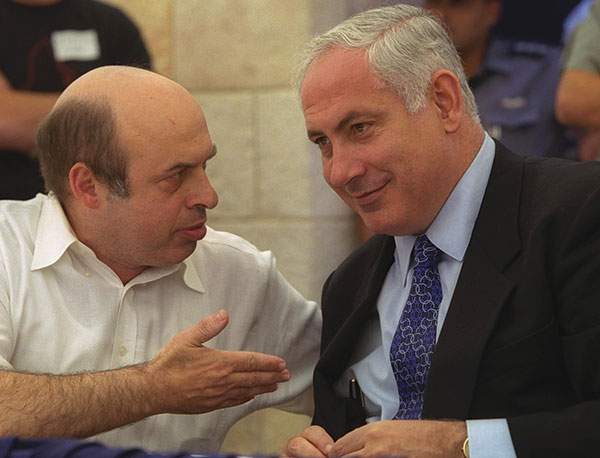
Nowhere is Never Alone more moving than when Sharansky and Troy recount Natan’s visit to Ethiopia as Israel prepared to bring thousands of Ethiopian Jews home. The world’s most famous oleh was moved to his core by the aspiring olim who had almost been forgotten. He remembers a 26-year-old first grader desperate to learn. Witnessing this modern exodus—different than his own but no less stirring—reminded him of what he’d told himself in his darkest days in prison: “Your history did not begin with your birth or with the birth of the Soviet regime. You are continuing an exodus that began in Egypt. History is with you.”
When Sharansky retired as chairman of the Jewish Agency, he was given a model El Al airplane with 207,188 on it, the number of people who immigrated to Israel during his tenure there. “I never tired of coming to the arrivals terminal,” he writes.
Every time I saw a new immigrant walk down those stairs onto Israeli soil, I would start thinking about how many generations of prayers and hopes were standing behind that particular oleh . . . just how big a historical and personal circle each new arrival was closing.
Sharansky himself closed a circle when he returned to Donetsk, the city in which he grew up. There, a non-Jew approached him and bitterly complained about his work for the Jewish Agency. “I’m not Jewish,” he said. “We’re all suffering too. No one’s coming to take me away from this nightmare and to give me a better life. . . . Only Jews are getting telephone calls from your organization. . . . Why are you people singled out?”
The many ironies of that question—like the miraculous nature of the Jewish state—speak for themselves. Yet explaining why the Jews were singled out is a question well beyond the scope of this thoughtful and moving book. For Sharansky, the historical, sociological, and theological answers to that question are less important than answering the question of how we must live as Jews. His answer is that the most authentic response to our historic role as outsiders must be to fashion lives defined by principle, loyalty, and love of nation. Reading Never Alone is a poignant experience that reminds us that we, too, are “part of the same story.”
Comments
You must log in to comment Log In
Suggested Reading
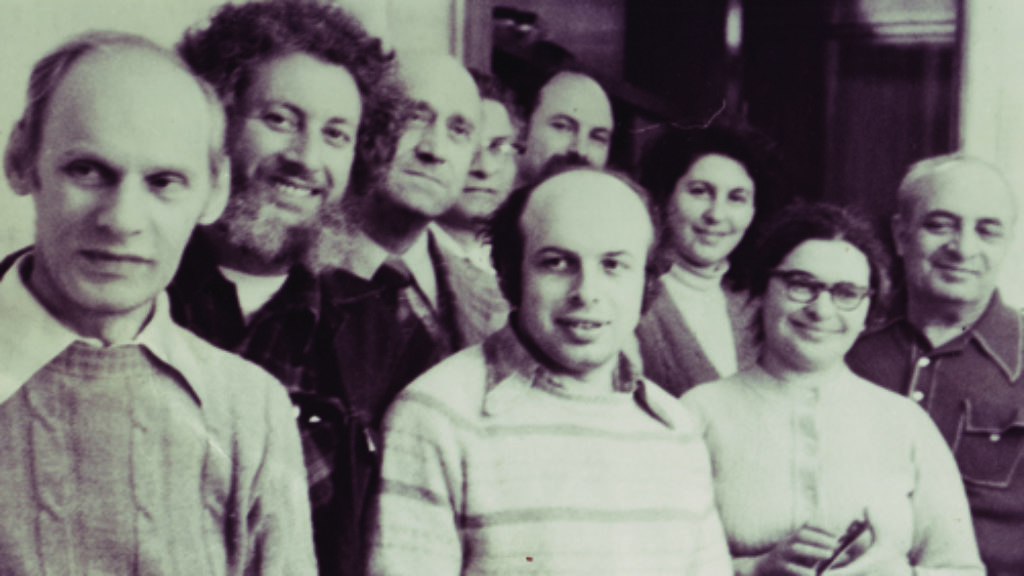
Let My People Go
Many of the heroes of the Soviet Jewry movement have been unsung, until now.

Lessons of the Soviet Jewish Exodus
Between the mid-1960s and 1991, more than two million Jews left the USSR. To the extent that the Soviet Jewish exodus is remembered, its lessons are misunderstood.
Our Exodus
How did a high-school dropout named Leon Uris pen one of the most influential novels of all time?
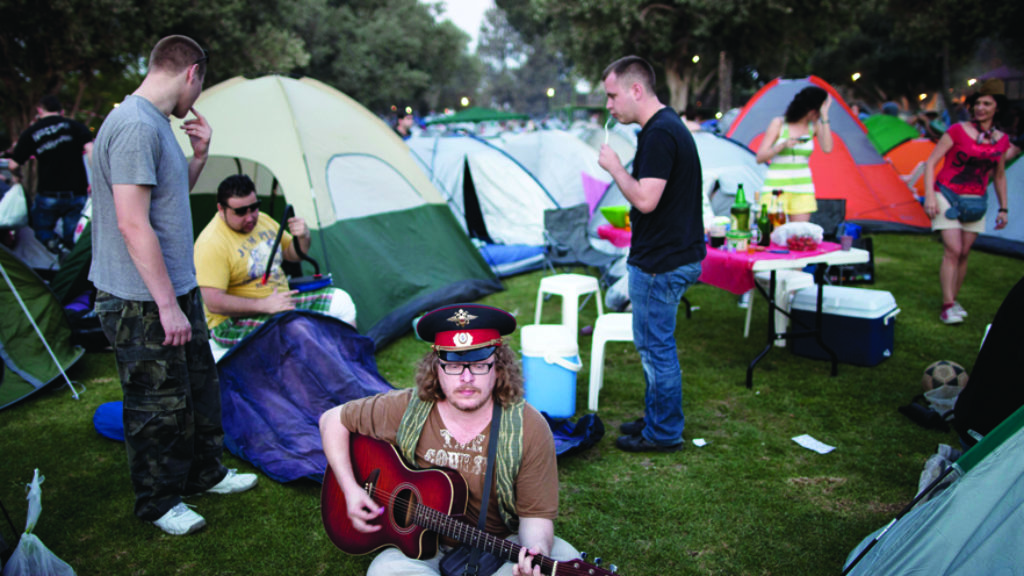
From Russia with Complications
In what ways is the Israel of the Russian aliyah an extension of the old and new Russia, and to the degree that it is, does this constitute a problem? A valuable report on the present state of affairs.
Bruce Roseman
Justice dressed in her beautiful roses walked by the naked Truth sitting naked on the steps of the local courthouse. “ Why are you crying ? Why are you so upset ?”
“ Nobody listens to me. No one pays attention to me. “
“ I understand. Here is my credit card. Go buy yourself some clothes and we will finish this conversation later.
The next day Justice came across Truth in the town square. This time there were hundreds of people gathered around to listen to her speak.
“ What happened” Truth asked her friend.
It is very difficult to listen the truth.
It is impossible to hear the naked truth.”